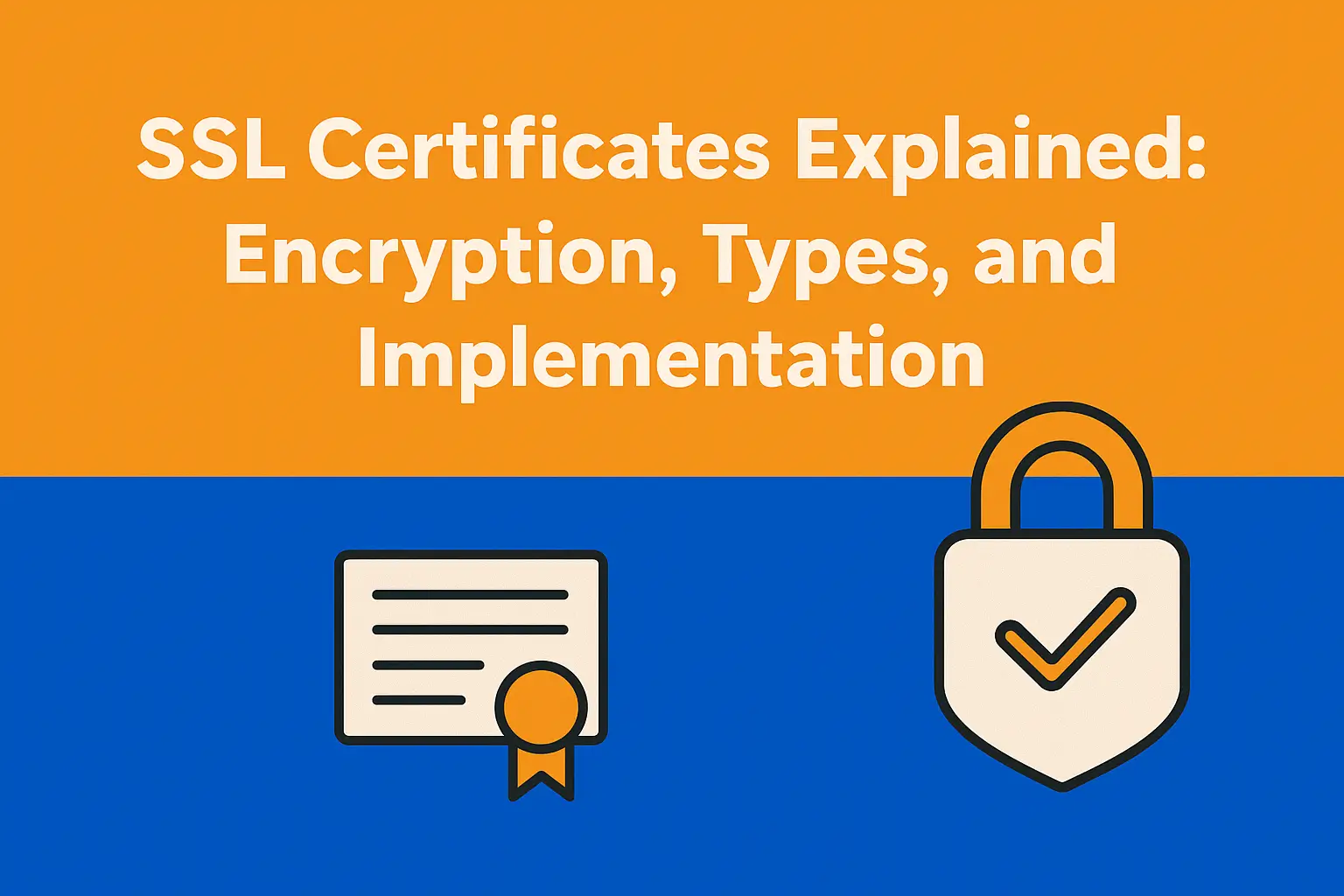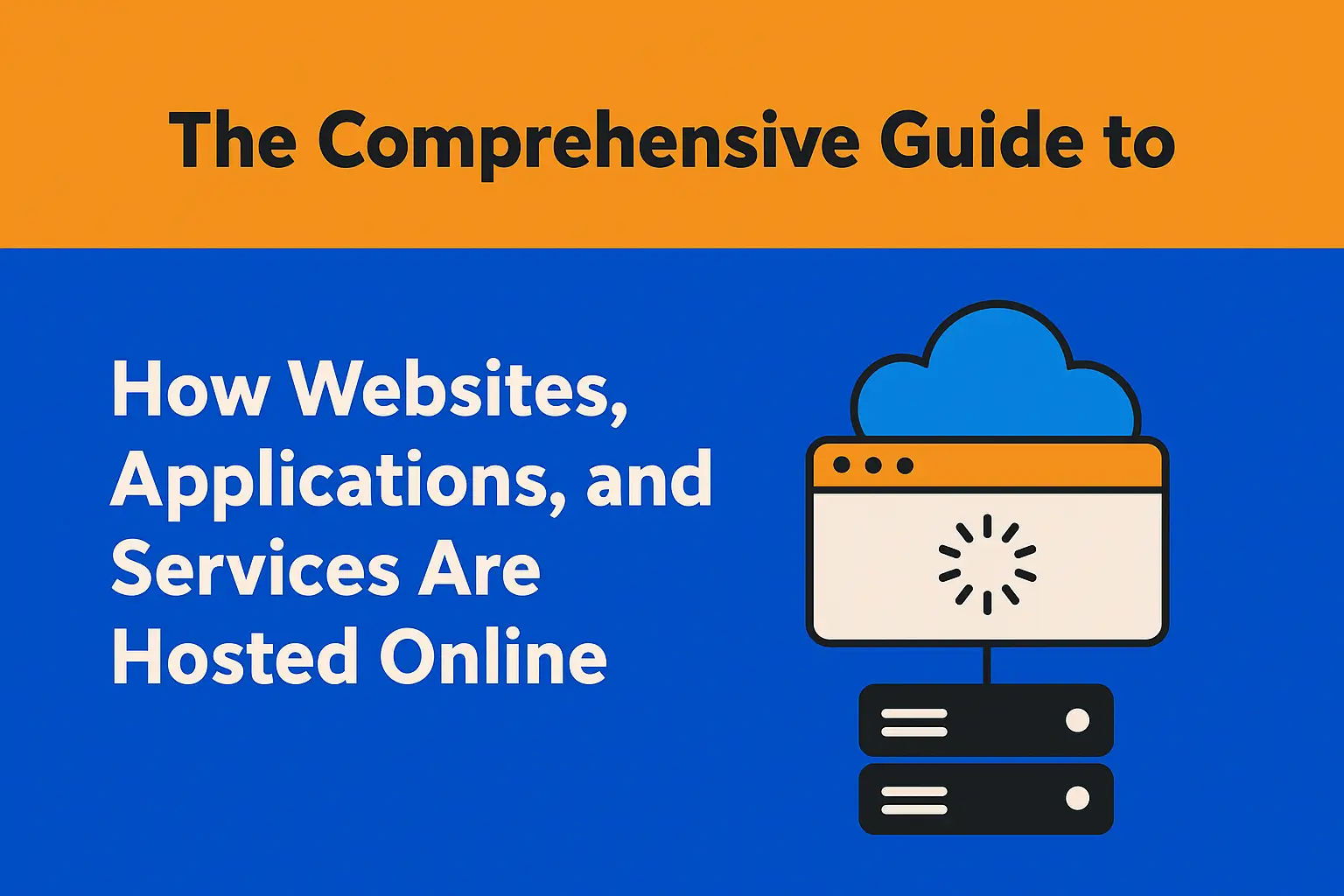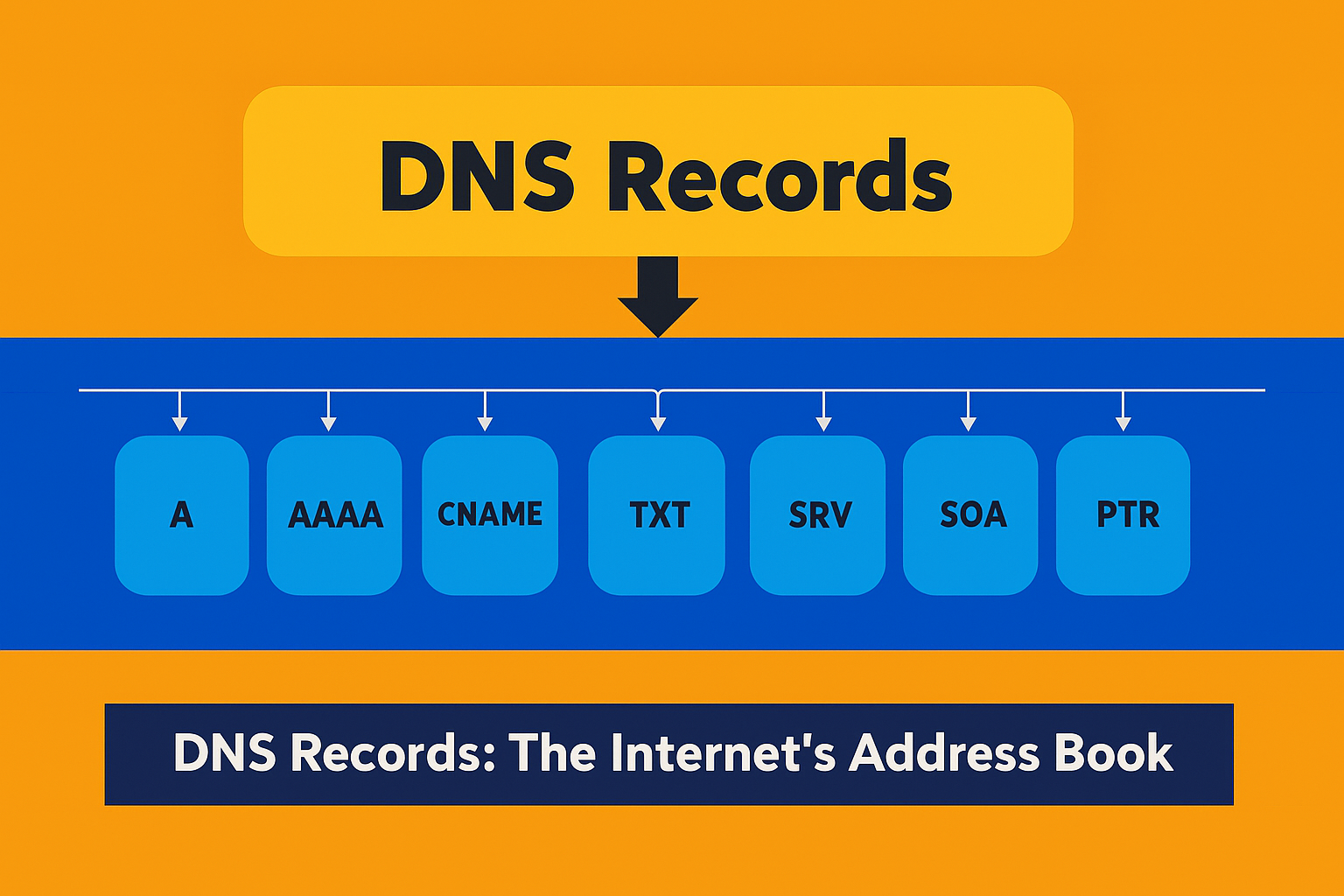
Introduction to Domain Names
A domain name serves as the cornerstone of your online identity, functioning as the address where Internet users can access your website. Much like a physical address, a well-chosen domain name can be pivotal in establishing your brand’s presence and visibility on the web. Whether you are an individual, a small business, or a large corporation, the domain name you select will contribute significantly to your online identity, credibility, and discoverability.
Domain names are the human-readable part of an Internet address, which makes them easier to remember than the numerical Internet Protocol (IP) addresses utilized by computers. Composed typically of a name and a domain extension (such as .com, .org, .net), they must be unique to ensure that there is no overlap on the Internet. Domain names not only facilitate navigation and accessibility but also reflect your brand or business, serving as the first point of contact for your audience.
The importance of choosing the right domain name cannot be overstated. A well-thought-out domain name can be a powerful branding tool. It should be easy to remember, spell, and pronounce, all while appropriately representing your brand’s ethos. Furthermore, a good domain name can significantly impact your search engine optimization (SEO) efforts. Search engines consider the relevance of your domain name to the content of your website, often ranking it higher if it aligns well with user queries.
Selecting a domain name with strategic keywords or branding terms can improve your site’s visibility on search engine results pages (SERPs), driving more traffic to your site. This searchable and memorable domain name can be a key differentiator in a competitive digital marketplace. Therefore, taking the time to carefully select the best possible domain name is an investment in the long-term success of your online presence.
Criteria for Choosing the Perfect Domain Name
Choosing a domain name is a critical step in establishing an online presence. A well-selected domain name can significantly impact your business’s success. Several key factors should be considered to ensure you make the right choice. These criteria include relevance to your business, ease of spelling and pronunciation, the appropriate length, strategic use of keywords, and avoiding potential legal issues.
Firstly, relevance to your business is crucial. Your domain name should reflect your brand identity and give users a clear idea of what your business is about. For instance, if your business offers eco-friendly products, a domain name like “GreenGoods.com” is relevant and informative. On the contrary, a generic name like “GreatDealsOnline.com” lacks specificity and may confuse visitors about what you offer.
The ease of spelling and pronunciation is another important consideration. A domain name that people can easily spell and pronounce is more likely to be remembered and shared. Complex names, like “XynnqxServices.com,” can be challenging for users and lead to potential loss of website traffic. Simpler, more intuitive names like “BrightTech.com” are more user-friendly and memorable.
Additionally, the length of your domain name matters. Shorter domain names are generally more appealing and easier to remember. Ideally, it should be between 6-14 characters, excluding the domain extension. Names like “SnapPics.com” are concise and impactful, whereas longer names, such as “PhotographyAndPictureServices.com,” may be cumbersome and forgettable.
Incorporating keywords into your domain name can improve your search engine optimization (SEO) efforts. Using relevant keywords helps signal to search engines what your site is about. For instance, “OrganicSkincareStore.com” directly relates to the products offered and can aid SEO. However, it’s important to avoid overstuffing keywords, which can appear spammy and hurt your credibility.
Lastly, avoid potential legal issues by ensuring your chosen domain name does not infringe on existing trademarks or copyrights. Due diligence, such as checking trademark databases and conducting comprehensive searches, can help you avoid potential legal disputes. Steer clear of names that might closely resemble well-known trademarks, as this can lead to costly legal battles.
By carefully considering these criteria, you can select a domain name that not only represents your business effectively but also contributes positively to your online presence and growth.
Overview of Domain Name Search Tools
Domain name search tools have become indispensable for individuals and businesses aiming to establish a presence on the internet. These tools streamline the process of finding available domain names, making it far more efficient than the traditional manual search method. By utilizing these tools, you can input your preferred keywords and instantly receive a list of available domains, complete with various domain extensions such as .com, .net, .org, and numerous others.
One of the key benefits of using domain name search tools is the significant amount of time they save. Rather than manually checking the availability of each potential domain name, these tools provide immediate feedback, enabling users to quickly identify which domains are still up for grabs. This rapid turnaround is particularly advantageous for businesses and individuals who need to secure a domain name promptly.
Additionally, domain name search tools often suggest creative alternatives when the desired domain is already taken. For example, if a simple .com domain is unavailable, the tool might recommend variations of the name with different extensions or slight modifications, ensuring a high degree of flexibility and creativity in your domain search. This feature is highly valuable for maintaining branding consistency and improving the likelihood of achieving your desired online identity.
Moreover, many domain name search tools also allow users to check the availability of domains across a wide range of extensions. With the proliferation of new and unique domain extensions beyond the traditional .com, .net, and .org, this multi-check function helps in broadening the scope and potential of your online presence. This ensures that you are not limited to a few standards, opening doors to unique and memorable domain name options that may stand out more in the online environment.
In essence, domain name search tools offer a comprehensive approach to selecting a domain name, combining speed, creativity, and broad availability checks, making the pursuit of an ideal domain name far more accessible and less time-consuming.
Detailed Comparison of Popular Domain Name Search Tools
In the expansive realm of domain name search tools, several leading platforms stand out due to their unique offerings and capabilities. Among the most notable are Namecheap, GoDaddy, Bluehost, and Domain.com. Each of these platforms presents distinctive features, pricing models, user interface designs, and unique selling points, which are crucial to consider when choosing the perfect domain name search tool.
Namecheap is widely recognized for its cost-effective pricing and user-friendly interface. This platform offers a straightforward and hassle-free experience for both domain registration and management. Namecheap typically provides competitive prices and frequent promotional discounts, ensuring affordability for domain seekers. An added advantage is its robust customer support, which is readily available to assist users.
GoDaddy, one of the most established names in the domain registration industry, offers a broad range of features. It stands out with its powerful search engine and extensive domain name extensions. GoDaddy also provides all-inclusive packages that combine web hosting, professional email addresses, and website building tools. However, its pricing is often higher compared to competitors, although the frequent discounts and deals can make it accessible for budget-conscious users.
Bluehost is well-known primarily for its comprehensive web hosting services, seamlessly integrated with domain name searches. This synergy makes it an optimal choice for users looking to streamline their web hosting and domain management under one roof. Bluehost provides competitive pricing and excellent customer support. Additionally, it often offers a free domain name for the first year with its hosting plans, adding substantial value to their offerings.
Domain.com is another significant player in the domain registration space. It offers a broad selection of domain extensions and user-friendly search functionalities. Notably, Domain.com provides several additional services such as web hosting, website building tools, and SSL certificates. Its pricing is moderate, and the interface is intuitive, making it accessible for users of all technical abilities.
The table below provides a concise comparison of these four domain name search tools:
| Platform | Features | Pricing | Ease of Use | Unique Selling Points |
|---|---|---|---|---|
| Namecheap | Domain search, SSL certificates, DNS management | Low to Moderate | High | Competitive pricing, customer support |
| GoDaddy | Domain search, hosting, email, website builder | Moderate to High | Moderate | Extensive domain extensions, package deals |
| Bluehost | Domain search, web hosting, email, SSL certificates | Moderate | High | Free domain with hosting plan, integrated services |
| Domain.com | Domain search, hosting, website builder, SSL certificates | Moderate | High | Broad domain extensions, user-friendly interface |
Carefully considering these aspects will guide you towards selecting the most suitable domain name search tool for your requirements.
Step-by-Step Guide to Using a Domain Name Search Tool
Using a domain name search tool like GoDaddy can significantly streamline the process of finding the perfect domain name for your website. This guide will walk you through the essential steps to start your search and complete the purchase seamlessly.
First, visit the GoDaddy website. If you do not already have an account, you will need to create one. Click on the “Sign In” button at the top right corner of the homepage, then select “Create an Account.” Fill in the necessary details, including your email address and a strong password. Once your account is set up, log in to access all the features of the domain name search tool.
Upon logging in, navigate to the domain search bar prominently displayed on the homepage. Enter the keywords or phrases related to your desired domain name. Click on the “Search” button to initiate the query. The tool will generate a list of available domain names that match or are similar to your specified keywords.
To narrow down the results, utilize the filter options on the left side of the search results page. Filters can help you specify the domain extension (such as .com, .net, .org), price range, and other criteria to ensure the search results align closely with your requirements. Once you apply these filters, the tool will display a refined list of potential domain names.
After reviewing the options, select the domain name that best fits your needs by clicking the “Add to Cart” button next to it. This action will prompt you to review your selection, along with any additional services you may wish to purchase, such as domain privacy protection or email hosting. Proceed by clicking on the “Continue to Cart” button.
In the shopping cart, ensure all details are correct, then click on “Proceed to Checkout.” You’ll be directed to the payment page, where you can enter your billing information and confirm the purchase. Once the payment is processed, you will receive a confirmation email, and the domain name will be registered under your account.
Overall, using a domain name search tool like GoDaddy is a straightforward process that allows for filtering results, easy navigation, and a secure purchasing experience. Following these steps will ensure you find and secure the perfect domain name for your online presence.
Tips for Generating Domain Name Ideas
Choosing the right domain name can significantly influence your brand’s online presence. Creativity is crucial, but it should align with your brand’s essence. To assist you in brainstorming appropriate domain name ideas, consider employing the following methods.
Firstly, using synonyms can be extremely beneficial. If your preferred domain name is already taken, identify alternative words that convey the same message. Leveraging tools like Thesaurus.com can pivot you towards unique but relevant options.
Secondly, consider combining words. Merging two or more relevant terms can help in creating a distinctive domain name. For instance, if you are launching a blog about travel and food, a name like “TravelBite” combines both elements effectively.
Another valuable approach is leveraging domain name generators. Online tools such as NameMesh, Lean Domain Search, and Bust a Name can provide a plethora of suggestions based on keywords you input. These generators can spark inspiration by offering creative and available domain names you might not have considered.
Furthermore, seeking feedback from friends or colleagues can widen your perspective. Sharing your top choices with trusted individuals can yield honest opinions, ensuring your domain name resonates well with others and is easy to remember and spell.
The importance of creativity in the domain name generation process cannot be overstated. However, it’s essential to stay true to your brand. Consider your brand’s voice, target audience, and overall messaging to ensure your domain name aligns seamlessly with your business identity.
Ultimately, generating an effective domain name requires a blend of creativity and strategic thinking. Utilize synonyms, combine relevant words, explore domain name generators, and seek feedback to find the perfect match for your brand. A well-chosen domain name can significantly enhance your online identity, setting the stage for your brand’s digital success.“`
Checking Domain Name Availability and Legality
Once you have brainstormed a list of potential domain names for your site, the next step is to check their availability. Domain name search tools, such as Whois, GoDaddy, and Namecheap, allow you to quickly determine if a specific domain name is already taken or if it’s available for purchase. By simply entering your desired domain name into the search bar, these tools provide instant feedback on its status and can suggest alternative names if your first choice is unavailable.
Ensuring the legality of your chosen domain name is equally crucial. Conducting a trademark search helps you avoid potential legal issues that may arise from using a name that conflicts with an existing brand. The United States Patent and Trademark Office (USPTO) provides an online database where you can search for registered trademarks. It’s advisable to use this resource to confirm that your domain name does not infringe on any trademarks. Similar databases are available in other countries; for instance, the European Union Intellectual Property Office (EUIPO) serves a similar purpose within the EU.
Beyond checking for registered trademarks, it is also important to conduct a thorough online search. A name might not be trademarked but could still be in common use, leading to brand confusion. Tools such as Google search and social media platforms can help you determine if your desired domain is already widely associated with another entity. In some cases, a lawyer specializing in intellectual property can provide a more comprehensive search and legal opinion to safeguard your business.
In conclusion, using domain name search tools is a critical step in the domain selection process. These tools not only confirm the availability of a domain but also assist in ensuring your chosen name does not infringe on existing trademarks. With due diligence, you can secure a domain that is unique, brand-compliant, and legally sound.
Finalizing and Registering Your Domain Name
Once you have identified a suitable domain name using domain name search tools, it is imperative to finalize and register it to secure your online presence. The first consideration in this process is selecting the appropriate domain extension. Popular extensions include .com, .net, and .org, but there are numerous other options like .io, .biz, and country-specific extensions, which can be advantageous for regional targeting or niche businesses. Evaluating the relevance and credibility of the extension in relation to your brand is crucial.
After deciding on the perfect domain extension, the next step is to consider purchasing domain privacy protection. This feature safeguards your personal information by preventing it from being publicly accessible through the WHOIS database. Domain privacy protection helps to mitigate the risk of spam, data breaches, and potential identity theft, ensuring that your contact details remain confidential.
Setting up automatic renewals is another critical aspect to consider when registering your domain name. Automatic renewal helps to avoid the accidental expiration of your domain, which can lead to a loss of website accessibility and potentially harm your brand’s reputation. Confirm that your registrar provides an option for auto-renewal and periodically verify that your payment information is up-to-date.
To conclude the registration process, it’s beneficial to perform a thorough review of all details to ensure accuracy. A final checklist can help in this regard:
- Choose a relevant and credible domain extension.
- Purchase domain privacy protection to secure personal information.
- Set up automatic renewals to avoid unintentional expiration.
- Verify all information before completing the registration.
By following these steps meticulously, you can confidently proceed with taking your domain name live, establishing a strong and secure online presence.





0 Comments